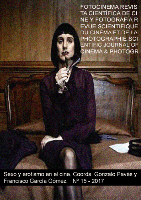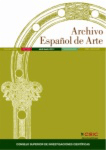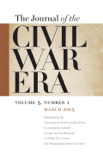
Cahiers de Civilisation Espagnole Contemporaine-De 1808 Au Temps Present
Scope & Guideline
Illuminating Spain's Journey from 1808 to Today
Introduction
Aims and Scopes
- Historical Analysis of Political Events:
The journal extensively covers significant political events in Spain's history, particularly those related to the Spanish Civil War and Franco's dictatorship, providing critical examinations of their impacts on contemporary society. - Cultural Studies and Identity:
It explores the cultural dimensions of Spanish identity, including literature, art, and social movements, delving into how these elements reflect and shape the Spanish national narrative. - Memory and Trauma Studies:
The publication frequently addresses themes of memory and trauma, particularly related to the Civil War and dictatorship, analyzing how collective memory influences current political and social discourses. - Interdisciplinary Approaches:
The journal employs a variety of methodologies, including literary analysis, historical research, and sociopolitical critique, allowing for a comprehensive exploration of its subjects. - Focus on Marginalized Voices:
It highlights often overlooked narratives, such as those of women and marginalized groups during historical conflicts, contributing to a more inclusive understanding of Spanish history.
Trending and Emerging
- Social Movements and Participatory Democracy:
There is an increasing focus on social movements, particularly those connected to participatory democracy, as evidenced by discussions surrounding events like 15-M, highlighting the role of grassroots activism in shaping modern Spain. - Gender Studies and Feminist Perspectives:
Recent issues have shown a growing trend towards gender studies, particularly in examining the roles and experiences of women during the Civil War and in contemporary society, reflecting broader societal conversations about gender equality. - Cultural Memory and Representation:
Emerging themes include the analysis of cultural memory and representation, particularly how historical narratives are constructed and contested in contemporary culture, indicating a shift towards understanding history through a lens of memory politics. - Transnational Perspectives:
The journal is increasingly incorporating transnational perspectives, exploring Spain's interactions with other countries, particularly in the context of the Spanish Civil War and its aftermath, thus broadening the scope of its analyses.
Declining or Waning
- Theoretical and Philosophical Discussions:
There appears to be a waning interest in highly theoretical or philosophical discussions, particularly those that do not directly engage with historical events or cultural phenomena, as newer publications focus more on empirical studies and direct historical analyses. - Traditional Literary Criticism:
The journal has seen a decrease in articles centered solely on traditional literary criticism, possibly due to a shift towards more interdisciplinary approaches that incorporate social and political contexts. - Studies on Francoist Art and Culture:
While earlier publications focused significantly on art and culture during Franco's regime, there seems to be a reduction in this area, perhaps as the discourse shifts towards contemporary cultural movements and post-Franco reflections.
Similar Journals

BULLETIN HISPANIQUE
Charting New Territories in Hispanic StudiesBULLETIN HISPANIQUE, published by PRESSES UNIV BORDEAUX, is a prominent academic journal dedicated to the interdisciplinary exploration of literature, linguistic studies, and historical analysis related to the Spanish-speaking world. Since its inception in 1972, the journal has established itself as a vital resource for researchers and scholars, achieving notable recognition across various categories—most recently characterized as Q2 in History, Q3 in Linguistics and Language, and Q1 in Literature and Literary Theory for the year 2023. Though it operates under traditional access models, BULLETIN HISPANIQUE maintains a commitment to scholarly excellence, offering insightful articles that contribute to the rich tapestry of cultural and linguistic discourse. With its Scopus rankings reflecting significant academic engagement, the journal serves as an essential platform for dialogue and discovery in the arts and humanities, appealing to a diverse audience of students, professionals, and academics committed to advancing knowledge in these vital fields.

Dirasat Hispanicas-Revista Tunecina de Estudios Hispanicos
Unveiling New Perspectives in Hispanic StudiesDirasat Hispanicas-Revista Tunecina de Estudios Hispanicos is a pivotal academic journal published by UNIV TUNIS MANAR, INST SUPERIEUR SCIENCES HUMAINES TUNIS, dedicated to the exploration and analysis of Hispanic studies within the broader context of history, linguistics, and literature. Established in Tunisia, this journal has transitioned to an Open Access model since 2014, promoting the dissemination of knowledge and fostering scholarly exchange among researchers, professionals, and students globally. With its ISSN 2286-5977 and esteemed recognition in various categories, including Q4 in History and Linguistics and Q3 in Literature and Literary Theory, Dirasat Hispanicas strives to bridge gaps in Hispanic scholarship by inviting diverse critical perspectives and innovative research. While its Scopus rankings reflect an evolving presence in the academic landscape, the journal remains committed to enhancing the visibility and impact of Hispanic studies. The journal continues to encourage submissions that contribute to its mission of intellectual advancement, making it an essential resource for those engaged in the rich tapestry of Hispanic cultural and linguistic heritage.

CELEHIS-Revista del Centro de Letras Hispanoamericanas
Fostering Dialogue in Latino Literary StudiesCELEHIS-Revista del Centro de Letras Hispanoamericanas is an esteemed academic journal dedicated to the exploration and dissemination of research in the field of Hispanic literature and cultural studies. Published by the UNIV NAC DE MAR DEL PLATA-CENTRO LETRAS HISPANOAMERICANAS, this journal has embraced open access since 2014, making its rich repository of scholarly articles available to a global audience. The journal aims to foster knowledge and dialogue surrounding the diverse literary expressions of Hispano-American cultures, providing insights that are crucial for researchers, professionals, and students alike. With its commitment to scholarly excellence, CELEHIS plays a significant role in enhancing the understanding and appreciation of Latino literature, while encouraging interdisciplinary collaboration and critical discourse within the academic community. Located in Mar del Plata, Buenos Aires, Argentina, it stands as a crucial platform for voices in the field, facilitating a deeper engagement with the literary heritage of the Spanish-speaking world.

Historia y Politica
Illuminating the Past to Understand the PresentHistoria y Política is a prestigious academic journal published by the CENTRO ESTUDIOS POLITICOS CONSTITUCIONALES in Spain, recognized for its in-depth exploration of historical and political dynamics. With an ISSN of 1575-0361 and E-ISSN 1989-063X, this journal holds a significant place in the academic community, categorizing itself within Q2 in History and Q3 in Sociology and Political Science as of 2023. Spanning published works from 1999 to 2024, it focuses on a diverse array of subjects related to historical phenomena and their political implications, appealing to researchers, professionals, and students seeking to understand the intricate connections between past events and contemporary political landscapes. The journal does not currently offer open access; however, its rigorous peer-review process ensures that each publication meets high scholarly standards. With Scopus ranking it in the 74th percentile for History and 32nd percentile for Sociology and Political Science, Historia y Política continues to contribute valuable insights and foster critical discussions in its fields of expertise.

Fotocinema-Revista Cientifica de Cine y Fotografia
Illuminating the Relationship Between Visual Arts and HistoryFotocinema-Revista Cientifica de Cine y Fotografia is a leading open-access journal published by FOTOCINEMA since 2014, dedicated to the academic exploration of cinema and photography. Based in Spain, this journal serves as a vital platform for researchers, professionals, and students, fostering innovative discourse in the fields of Visual Arts, Performing Arts, and History. With an impressive Q2 rank in both History and Visual Arts, as well as a Q4 rank in Communication in 2023, Fotocinema reflects a commitment to high-quality scholarship, backed by Scopus rankings that highlight its growing influence within the academic community. By offering open access to its content, the journal ensures that significant research is available to a broader audience, encouraging collaboration and knowledge sharing across disciplines. As it continues its converged publication run from 2019 to 2024, Fotocinema stands at the forefront of cinematic and photographic studies, providing an essential resource for those dedicated to understanding the intricate relationships between visual media and society.

ARCHIVO ESPANOL DE ARTE
Unlocking the World of Art ResearchARCHIVO ESPANOL DE ARTE is a distinguished journal dedicated to the exploration and dissemination of research in the fields of visual arts and performing arts. Published by CONSEJO SUPERIOR INVESTIGACIONES CIENTIFICAS-CSIC in Spain, this journal has been an open access publication since 1996, facilitating unrestricted access to valuable scholarly content for researchers, professionals, and students alike. With an E-ISSN of 1988-8511 and a commitment to covering a range of artistic phenomena, it plays a significant role in advancing the understanding and appreciation of art within both academic and cultural contexts. Although currently categorized in the Q4 quartile within its discipline, its ranking within Scopus—at #400/667, placing it in the 40th percentile—reflects its contributions to the broader discourse in art research. The journal's suite of open access offerings ensures that cutting-edge research remains accessible, fostering collaboration and innovation in the ever-evolving landscape of the arts.

INTERNATIONAL JOURNAL OF IBERIAN STUDIES
Fostering Interdisciplinary Dialogue in Iberian StudiesINTERNATIONAL JOURNAL OF IBERIAN STUDIES (ISSN 1364-971X; E-ISSN 1758-9150), published by INTELLECT LTD, stands as a pivotal forum for interdisciplinary research on the Iberian Peninsula, engaging with complex cultural, historical, and political narratives. Established in 2012, this journal highlights diverse perspectives and fosters scholarly dialogue within its scope bridging Cultural Studies, History, and Political Science, reflected in its 2023 Scopus rankings which place it within the Q3 and Q4 quartiles across various categories. Although currently not an open-access journal, it provides critical insights and original research essential for students, researchers, and professionals alike. The journal's commitment to exploring the multifaceted dimensions of Iberian studies makes it a significant contributor to the field, encouraging submissions that deepen understanding and promote scholarly excellence.

Rhythmica-Revista Espanola de Metrica Comparada
Fostering Interdisciplinary Insights in Metrical StudiesRhythmica-Revista Espanola de Metrica Comparada, published by the UNIV NACL EDUCACION & DISTANCIA-UNED, is a premier academic journal specializing in the comparative study of metrics within the realm of Hispanic literature and beyond. With the ISSN 1696-5744, this journal serves as a vital platform for researchers, professionals, and students to explore the intricacies of rhythm and meter in comparative contexts. Located in Madrid, Spain, it aims to foster interdisciplinary exchange and stimulate innovative research in the field of metrical studies. Although open access options are limited, the journal remains committed to distributing high-quality, peer-reviewed articles that significantly contribute to the academic discourse surrounding metrics. As an essential resource for those engaged in literary studies, Rhythmica continues to amplify critical voices and provides insightful analyses that advance the understanding of poetic structures across diverse languages.

Journal of the Civil War Era
Exploring the Echoes of a Defining EraJournal of the Civil War Era, published by University of North Carolina Press, is a leading scholarly journal dedicated to the exploration of the American Civil War and its far-reaching impacts on society and culture. With its ISSN 2154-4727 and E-ISSN 2159-9807, this journal provides a critical platform for researchers, academics, and students interested in advancing knowledge in the field of history. As a recognized Q2 journal in History, ranked #549 out of 1760 in the Scopus Arts and Humanities category, it boasts a 68th percentile ranking, reflecting its influence and contribution to historical scholarship. Although it does not currently offer open access options, the journal aims to publish innovative research that deepens our understanding of this pivotal era, making it an essential resource for anyone engaged in the study of American history. Its converged years span from 2019 to 2024, showcasing a commitment to contemporary scholarship while providing a rich context for deeper historical analysis.

Studia Aurea-Revista de Literatura Espanola y Teoria Literaria del Renacimiento y Siglo de Oro
Exploring the Rich Tapestry of Spanish LiteratureStudia Aurea-Revista de Literatura Espanola y Teoria Literaria del Renacimiento y Siglo de Oro, published by the esteemed Universitat Autònoma de Barcelona, stands as a pivotal academic resource in the fields of Literature and History, specializing in Spanish literature from the Renaissance and the Golden Age. With its Open Access model established since 2007, this journal ensures that groundbreaking research is readily available to scholars and enthusiasts worldwide. Notably recognized for its quality, in 2023 it achieved Q1 rankings in both History and Literature and Literary Theory, reflecting its significant contribution to advancing knowledge in these domains. The journal's Scopus rankings further underscore its impact, placing it in the top 20% for literature and the top 37% for history. As it converges from 2018 to 2023, Studia Aurea continues to facilitate critical discussions, innovative research, and the exploration of literary theories, making it an essential platform for researchers, professionals, and students alike.